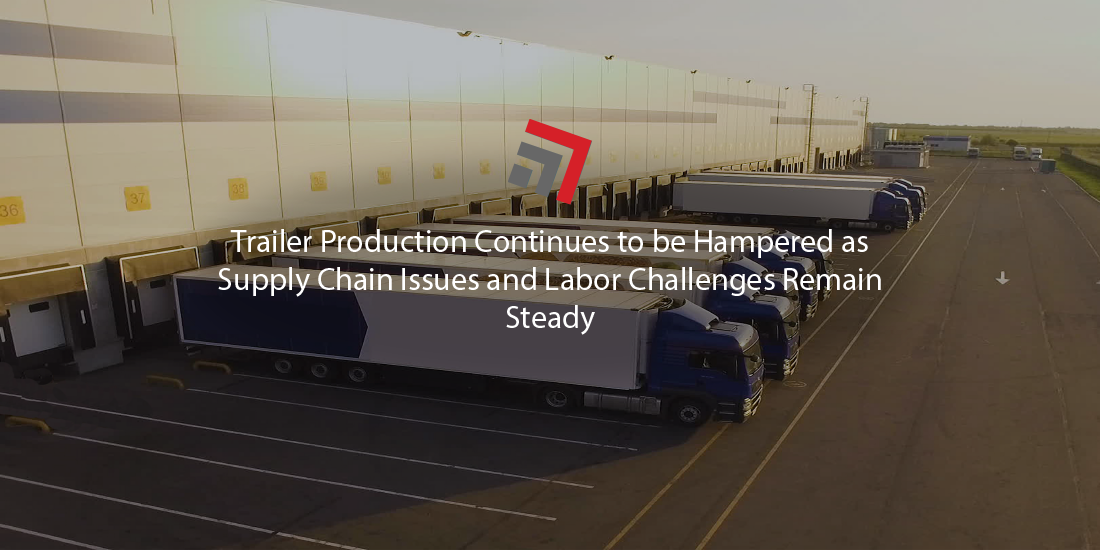When it comes to trailer makers meeting demand and set prices, there is no end in sight – at least in the long-term. Shortages of labor, as well as a variety of supply chain issues has made the pent-up demand for trailers scorching hot.
According to Transport Topics, demand for trailers is roughly over 80,000 units, as supply could not keep up with demand last year. In addition, there has been supply shortages from 30+ parts, (ie axles to decals, etc), throughout the last year.
Everyone is facing impacts
Cost of materials and a variety of supply chain issues continue to impact everyone. Labor shortages for one, have factored into production limitations over the past year. They have been a crucial reason suppliers have not been able to keep up with demand. Transport Topics reports that finding labor is better than what it has been. However, it still has its challenges and won’t be going away anytime soon.
Specifically, finding workers that fit the skill set needed by companies have been hard to come by, Al Anderson, Vice President of Sales and Marketing for Peterson Manufacturing Co., knows firsthand. “The set of skills needed to perform the tasks necessary to produce a very high-quality product is unique,.” Anderson continues, “they must have high dexterity, be very detail-oriented and yet able to multitask is a special type of employee.”
Are there solutions?
Creating and having strong partnerships with suppliers has been crucial in lessening supply disruptions compared to what some in the industry are experiencing. “New strategies and frequent communication have been more effective than simply adding more suppliers,” Dave Kinsley, Vice President of Materials for East Manufacturing, told Transport Topics.
Another solution is ordering more items in advance than you normally would. David Giesen, Vice President of Sales for Stoughton Trailers, says they now do things in a 2-4 month lead time, instead of a 2-3 week lead time. Some manufacturing companies purchasing departments are now putting in orders up to 12 months in advance. This is to make sure they get what they need when they need it by.
Substitutions or alternatives of products have also been given more thought by manufacturers and fleets. “We were planning to give you X, but we’re going to give you Y to keep it moving,” Giesen told Transport Topics, on how they have embraced substitutions for products.
Trucking Ahead
We will continue to provide updates on the latest in the industry and more throughout the year and beyond. If you have any questions or comments regarding this topic, please don’t hesitate to contact our team today!



Recent Comments